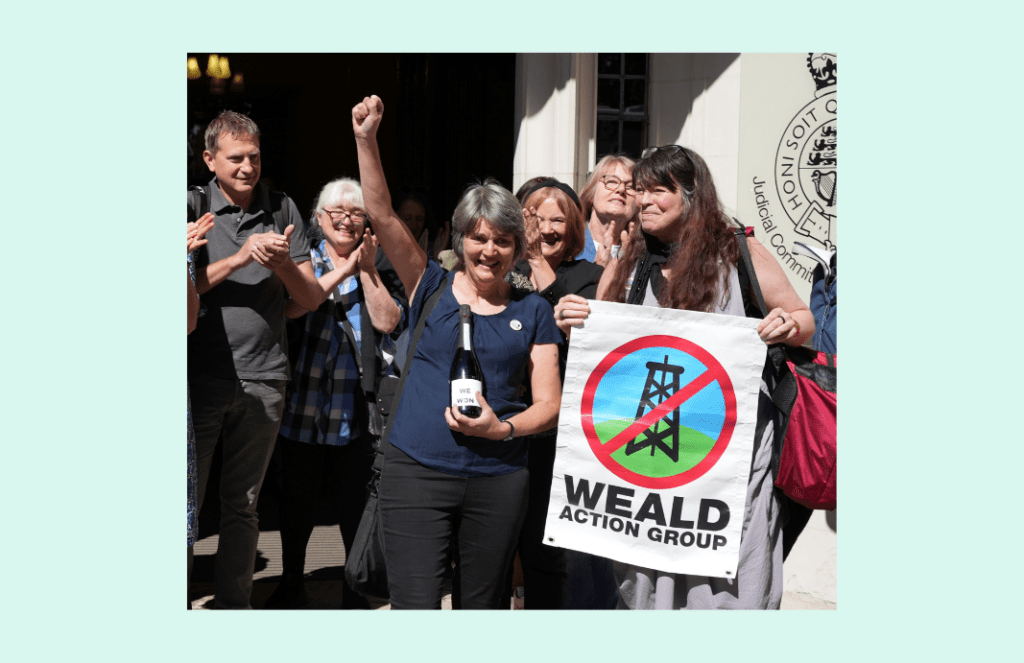“Sometimes you have to be a little bit Naughty…” – Sarah Finch stars as Matilda Wormwood…
In 1988, Roald Dahl wrote Matilda, the story of an intelligent young girl with a rebellious spirit and a love of reading, who is unwilling to accept the unfair hand that life has dealt her. The most recent adaptation of this wonderful book was in 2022 when Netflix picked up the baton, casting the fabulous Alisha Weir as Matilda, who brought the character to life supported by a series of top-notch tracks from the musical brilliance of Tim Minchin.

One of the most loved songs from that movie comes early in the show when Matilda sings ‘Naughty’, a cheeky and uplifting call to action to all those who feel a sense of unfairness. The song starts with Matilda reflecting on the tragedy of Romeo and Juliet, whose ending, she sings, was “written in the stars before they even met”.
With a wonderful sense of youthful free-spiritedness, Matilda asks “I wonder why they didn’t just change their story?”
“Just because you find that life’s not fair it, doesn’t mean that you just have to grin and bear it…”
In November 2020, Sarah Finch led a group of claimants into the High Court. Stepping up as the lead claimant on behalf of the Weald Action Group, Finch and her fellow activists were challenging a planning decision by Surrey County Council (“SCC”) to permit the development of an onshore oil well at a site in Surrey called Horse Hill. If it went ahead, the development would have resulted in a facility with six wells, from which oil would have been extracted for more than twenty years.
Opposing Finch’s application was not just SCC and the development company, Horse Hill Developments, but also the UK Government, in the form of the Secretary of State for Levelling-Up, Housing and Communities.
Under the Town and Country Planning (Environmental Impact Assessment) Regulations 2017 (the “EIA Regulations”), before planning permission can be granted for a development project which is likely to have significant effects on the environment, an Environmental Impact Assessment (“EIA”) must be carried out.
The purpose of the EIA is to identify, describe and assess the likely direct and indirect significant effects of the project on the environment, including the impact the project will have on the climate. Whilst there is nothing to stop a planning authority from granting planning permission to a project that is likely to cause significant environmental harm, the authority is required to reach a reasoned conclusion, which takes into account the environmental impact of the proposed development.
“If you always take it on the chin and wear it, nothing will change…”
At the heart of Finch’s case was a critical issue: should the EIA for the Horse Hill project have included an assessment of the indirect greenhouse gas (“GHG”) emissions that would result from the combustion of the oil that would be extracted from the site (often referred to as ‘downstream’ emissions).
Whilst SCC had considered the emissions that would be caused directly by the operations at the site itself, they had not taken into account these downstream emissions. It was estimated that, over the lifetime of the development, this would equate to some 10.6 million tonnes of GHG emissions, once the 3.3 million tonnes of oil that it was expected would be produced from the site had been burned as fuel.
Finch argued that SCC had inappropriately failed to account for these downstream emissions, which would contribute significantly to climate change, as part of the EIA process. She contended that a comprehensive EIA must consider not just the direct impacts of a project, such as the immediate environmental effects of drilling and production, but also the downstream impacts, like the carbon emissions from the oil’s end-use.
Both the High Court and the Court of Appeal initially ruled against Finch, holding that the EIA Regulations did not require that downstream emissions from a development such as this needed to be taken into account as part of the ‘indirect significant effects’ of the proposed development. Amongst other lines of reasoning, these emissions were seen to be too far removed from the development project itself, to properly be considered as part of the EIA process.
Finch refused to accept these rulings, determined to challenge what she saw as a fundamental oversight in how environmental impacts are assessed as part of the EIA process.
“Even if your little you can do a lot, you mustn’t let a little thing like, little stop you…”
Undeterred by the initial setbacks, in June 2023 Finch took her case to the Supreme Court. In a landmark decision in June 2024, the Supreme Court ruled in favour of Finch by a three-to-two majority, holding that the EIA should have included the downstream GHG emissions resulting from the end-use of the oil extracted at Horse Hill.
This ruling was a pivotal moment, not just for the development of environmental law in the UK but for efforts against climate change more generally. In clarifying that, for the purposes of the EIA Regulations, the environmental impact of fossil fuel projects extends beyond the immediate site of extraction and includes the broader climate implications of the fuel’s ultimate use, the Supreme Court has effectively raised the bar for planning authorities considering proposed developments of this type.
The Supreme Court recognised that, in the circumstances of this case, excluding indirect emissions from the EIA would undermine the effectiveness of the EIA Directive, especially in the context of addressing climate change. It was agreed between the parties that the oil produced at the site would inevitably be burned as fuel and that a quantifiable amount of GHG emissions would result. It did not matter, in the view of the majority, where that combustion actually took place. At para 97 of the judgment, Lord Leggatt noted:
“Climate change is a global problem precisely because there is no correlation between where GHGs are released and where climate change is felt. Wherever GHG emissions occur, they contribute to global warming. This is also why the relevance of GHG emissions caused by a project does not depend on where the combustion takes place. If an activity is carried on which will inevitably result in significant GHG emissions, people who carry on the activity cannot be heard to say: “These emissions are not effects of our activity because they are occurring far away among people of whom we know nothing.””
“In the slip of a bolt, there’s a tiny revolt…”
Finch’s victory has set an important precedent for how EIAs should be conducted, particularly for fossil fuel developments. The decision represents what Matilda describes in Naughty as a “tiny revolt”, a small but significant moment with the power to spark bigger change.
This wider, systemic impact of the ruling in Finch quickly became evident when the British Government subsequently decided not to defend an application for judicial review concerning the proposals to develop the Rosebank and Jackdaw oil fields. Neither of these proposed developments considered the downstream GHG emissions that would be generated by the combustion of the fuels produced from either site as part of their EIA. Indeed, just the Rosebank oil field is expected to produce up to 300 million barrels of oil over its operational lifetime – vastly more than the anticipated output from the proposed development at Horse Hill.
Following the precedent set by the Supreme Court in Finch, it seems highly likely that both EIAs will now be found to be deficient, hence the Government withdrawing its defence. Whilst that does not mean that these developments will not ultimately go ahead, it is likely to significantly delay the process, inevitably impacting the economics of these projects and making them less financially attractive to the developers.
The precedent set by Finch is already having an impact far beyond Horse Hill in Surrey and serves as a reminder of the power of principled individuals to make a positive impact, even in the face of immense odds.
“If you’re stuck in your story and want to get out, you don’t have to cry, you don’t have to shout…”
The first time I read about Finch’s case in detail, a strange thing happened.
Naughty started playing in the back of my mind.
As I thought about the lyrics of that wonderfully catchy tune, and slowly caught up on Finch’s amazing story, I couldn’t help but see certain parallels between Matilda and Sarah Finch.
Matilda is precocious, with a deep sense of fairness and a willingness to be “a little bit naughty” to correct the injustices she sees in the world around her. Matilda took a stand against her abusive parents and vile headmistress, and changed things for the better, not just for herself but also her classmates and even her teacher.
We see in Sarah Finch and her fellow activists the same values and tenacity that define Roald Dahl’s beloved literary five-year-old. There was undoubtedly something a little bit naughty about bringing a judicial review to try and halt an oil development near her home, especially knowing how stiff and well-resourced the opposition would inevitably be. Finch’s perseverance led to a Supreme Court decision that will shape the future of environmental law in the UK and have climate-positive impacts for years to come. Her success demonstrates the power of individual action in driving systemic change and should serve as an inspiration to environmental lawyers, climate campaigners and sustainability professionals alike.
For those of us on the front line of the work against the sometimes seemingly insurmountable juggernaut that is climate change, Finch’s case is a profound example of how a determined individual can lead the charge to achieve meaningful change, no matter how small their voice may seem. Finch’s story underscores the importance of persistence in the face of adversity and the value of continuing to fight for what is right, even when the system seems to be against you and you fail at the first few hurdles.
As Matilda sings, “Cause if you’re little, you can do a lot, you mustn’t let a little thing like “little” stop you, if you sit around and let them get on top, you won’t change a thing“. Sarah Finch has proven that to be true, not just for herself, but for all of us working towards a better world.
It seems appropriate to end this article with the final lines from Naughty, which capture Matilda’s determined and rebellious spirit; a spirit that is so wonderfully embodied by Sarah Finch, to whom all of us should be grateful:
“Nobody else is gonna put it right for me, nobody but me is gonna change my story, sometimes you have to be a little bit naughty.”
Get in touch
We opened our doors on 4 March 2024. As a relatively new firm, we are not yet in a position to offer all of the services described on this website. We have done our best to make clear what we can do now, and what forms part of our exciting plans for the years ahead. We are working hard to make our ambitious vision into a reality.
In the meantime, please do subscribe to receive our regular thought leadership and feel free to follow our journey and progress on LinkedIn.
